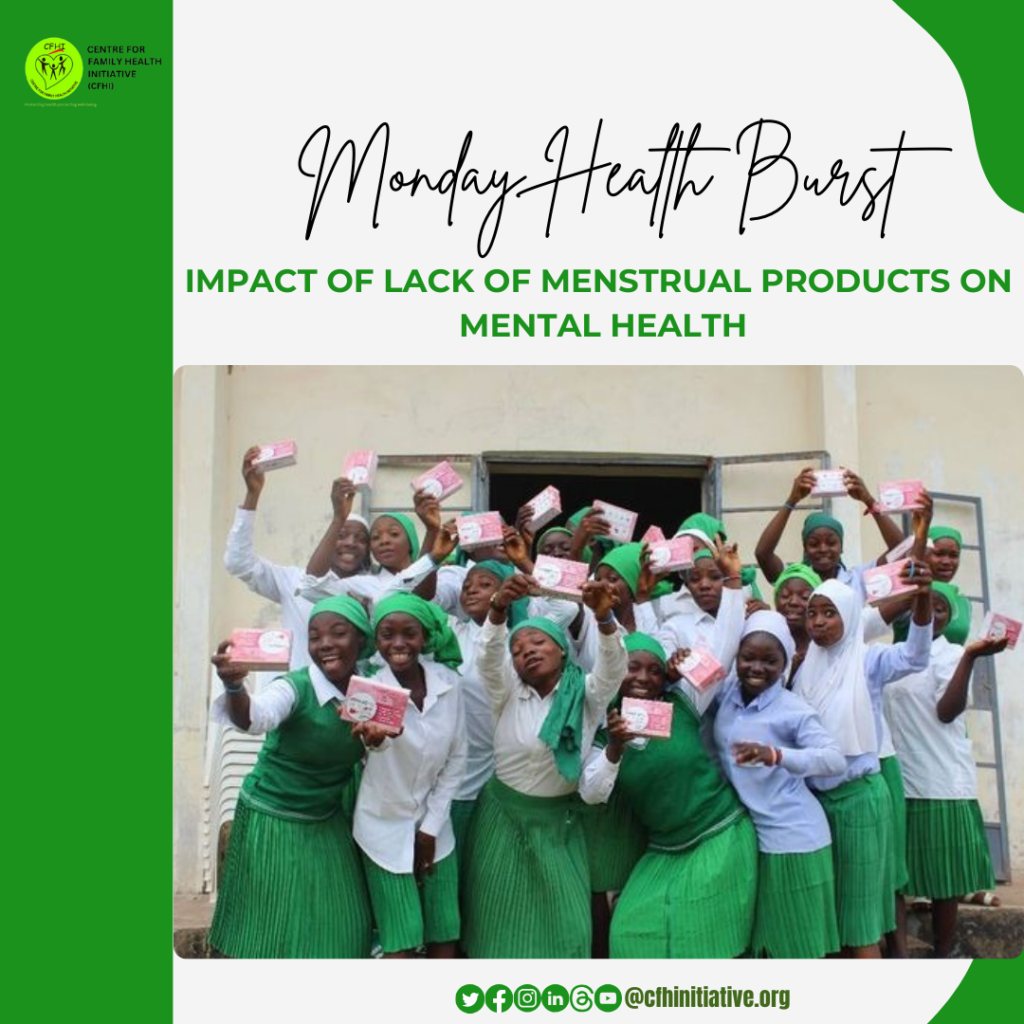Menstrual hygiene is a crucial aspect of health for individuals who menstruate, yet millions around the world face significant challenges in accessing necessary products and facilities. On any given day, more than 300 million women worldwide are menstruating. In total, an estimated 500 million lack access to menstrual products and adequate facilities for menstrual hygiene management (MHM).1 The absence of adequate menstrual hygiene products not only affects physical health but also has profound implications for mental health.
Menstruation is often shrouded in stigma and taboo, leading to feelings of shame and embarrassment. Inadequate access to menstrual hygiene products exacerbates this stigma, forcing many individuals to use ineffective alternatives like old clothes, rags, or even paper, which can be uncomfortable and unreliable. This situation often results in leaks and odors, further stigmatizing the individual. The fear of being judged or ridiculed can lead to social isolation, where individuals avoid school, work, or social interactions, perpetuating a cycle of exclusion and loneliness.
The lack of menstrual hygiene products is a significant barrier to education for young girls. Many miss several days of school each month or drop out entirely due to the unavailability of adequate facilities and products. This educational disruption has long-term consequences, including diminished career opportunities and economic instability, which can contribute to chronic stress and anxiety. The constant worry about managing menstruation in public spaces further compounds the mental health burden.
Furthermore, using unsuitable alternatives to sanitary products can cause physical discomfort and health issues, including infections. The constant battle with discomfort and the potential for health complications can create a persistent state of anxiety and stress. The fear of potential health problems and the inability to maintain basic hygiene can severely impact self-esteem and overall mental health.
The recurring monthly challenge of managing menstruation without proper products creates a relentless emotional strain. The inability to afford or access menstrual products can evoke feelings of helplessness, frustration, and inadequacy. For those already struggling with poverty, the added financial burden of purchasing menstrual products can lead to heightened stress and anxiety. The emotional toll of constantly worrying about menstrual hygiene can diminish overall quality of life and lead to more severe mental health issues, such as depression.
Effective menstrual hygiene management (MHM) is crucial for empowering women and girls to reach their full potential. Poor menstrual health and hygiene have far-reaching negative impacts across various sectors. Consequently, the Centre for Family Health Initiative (CFHI) employs a comprehensive approach to improving menstrual hygiene in its operations within vulnerable communities in Nigeria.
Over the years, CFHI has provided SafePadTMfor more than 2000 vulnerable women and girls in underserved communities. We have partnered with many organizations to commemorate Menstrual Hygiene day by campaigning and raising awareness against period poverty, providing education on menstrual hygiene, and distributing free SafePadTM
The impact of lacking menstrual hygiene products extends far beyond physical discomfort, deeply affecting mental health and overall well-being. Addressing this issue is not only a matter of public health but also of human rights and gender equality. By ensuring that everyone has access to the necessary menstrual hygiene products and education, we can alleviate significant mental health burdens and promote a healthier, more inclusive society.
Reference:
https://www.worldbank.org/en/topic/water/brief/menstrual-health-and-hygiene1
https://mailchi.mp/b838e480faa1/cfhi-prioritizing-menstrual-hygeine-in-nigeria




